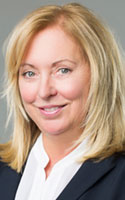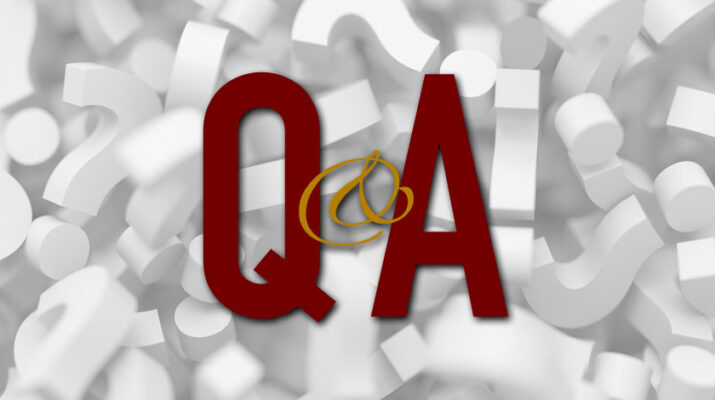Trillium Health’s president and CEO discusses caring for the LGBTQ community during the pandemic and how the nonprofit has managed to survive financially
By Mike Costanza

Despite the coronavirus pandemic, Trillium Health has continued to provide an entire range of healthcare to its patients. In Good Health recently asked Andrea DeMeo, Trillium Health’s president and CEO, how the organization is faring these days. The nonprofit employs about 270 people at facilities on Rochester’s Monroe Avenue and Science Parkway and three other sites, and has a current budget of $32 million
Q. “Trillium Health” is an interesting name for an organization. What is its significance?
A. Trillium is a rare flower that’s found in Upstate New York, and it has three petals. It was chosen to be part of our name to represent the three aspects of health, and that is physical health, mental health and social health.
Q. What is Trillium’s mission?
A. Our mission is that we ensure access to healthcare for all individuals, regardless of their ability to pay. We are a community-based clinic, and we’re a federally qualified health center look-alike, meaning that we need to meet all of the requirements of a fully designated federally qualified health center. We ensure access to healthcare for all, including our LGBTQ [lesbian, gay, bisexual, transgender and queer] communities and that finances are never a barrier to care.
Q. How did Trillium respond to the coronavirus pandemic?
A. Our No. 1 priority was staff and patient safety. We needed to modify our programs and services to make sure that we provided the vital care that our patients and clients deserved. That required facility enhancements, moving our staff to be able to work remotely as quickly as possible, investing in our IT [information technology] structure so that it would support telehealth visits and other telephone-like visits, and modifying our facilities.
Q. Trillium Health treats a few of its patients onsite. What measures have you taken to protect them, and your staff?
A. Less than 30% of the workforce is currently working onsite. We also had to make sure that all of our staff were trained in the use of personal protective equipment. Masks are required for staff, and anybody visiting Trillium Health.
Q. Your nonprofit specializes in the treatment of infectious diseases, which includes testing for HIV, hepatitis C and sexually transmitted infections.
A. Because we are leaders in infectious disease, we do have a number of our patients whose immune systems are compromised, and we also are experts in sexual health. We needed to move from face-to-face visits, and we quickly created an at-home service for members of our community to receive free at-home HIV and STI [sexually transmitted infections] testing
Q. How can you do that in a patient’s home?
A. It’s a self-contained kit that has all the necessary test tubes, instructions, gloves and vials. Once a sample is taken, it’s sent off to a lab for diagnostic testing, and those test results are shared with our clinicians.
Q. How has Trillium helped other vulnerable populations through this crisis?
A. People of color as well as those who are low income or living in poverty are at greater risk for acquiring the virus. We’ve launched mobile access for COVID-19 testing in partnership with community organizations, and also provide testing onsite with Trillium Health on Monroe Avenue.
Q. Trillium also has a pharmacy and food bank. How have you managed to keep them running, while reducing the risk of coronavirus transmission?
A. We had to “turnkey” our pharmacy operation — turn it from an onsite pharmacy to a home delivery service. We use the US postal service. For urgent, same-day deliveries, we deliver them ourselves. Pharmacy home delivery and telehealth have been very well received. We also continue to provide our food bank, but needed to change it to a grab-and-go operation, as opposed to a shopping experience.
Q. Has the pandemic affected Trillium’s finances?
A. Our visit volumes are still behind what they were before COVID, which has necessitated us to take action to reduce expenses. We wanted to make sure that we kept morale up, and provided [staff] payroll security for four-and-a-half months to keep people economically secure. Eventually we did receive a Paycheck Protection Program loan. We also received some funds through the last CARES Act that was approved by Congress. Most recently, we’ve had local funders step up to help us. We have strong sea legs to recover financially.
Q. How are you folks doing overall?
A. We are becoming accustomed to the new way of providing care. We’ve fully expanded our operations and we’ve reopened our pediatrics and GYN clinic at 170 Science Parkway. I’m very grateful for the heroic efforts of all of our staff because we could not continue to provide care if we didn’t come together with the strength of the cadre of people who work at Trillium Health.
For more information on Trillium Health, go to: www.trilliumhealth.org.

